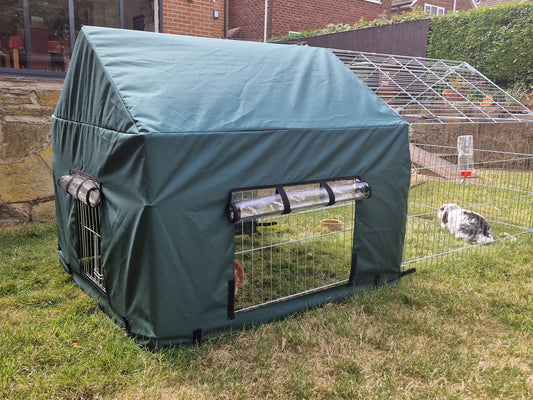In 2000, the European Union introduced the Pet Travel Scheme (PETS) to allow cats, dogs and ferrets to move freely between member countries without the need for quarantine. Pet passports were issued on proof of a pet having a microchip, rabies vaccination, and tapeworm treatment (for dogs) before travel. For the first time, owners could take their pets on overseas holidays, opening the possibility of exciting adventures in other countries.
Following Great Britain’s departure from the EU, PETS no longer applies and any pet passports issued in Great Britain prior to Brexit can no longer be used. However, the scheme continues to run in the European Union and pet passports issued in Northern Ireland or EU countries are still valid for travelling in the EU and Great Britain.
If you wish to travel from and return to Great Britain with a cat, dog or ferret it is vital that you follow the new system correctly. Not doing so would be a violation of the pet travel rules and require you to put your pet in quarantine for four months. You would be responsible for paying any fees and charges, and could be taken to court.
Follow our guide to overseas travel and if there is anything you are still unsure about, do speak to your vet. They will be able to help you comply with the regulations so you can focus on enjoying your holiday.
Travelling from Great Britain to an EU country or Northern Ireland
To take your cat, dog or ferret to an EU country or Northern Ireland, your pet will need the following:
- A microchip
- A valid rabies vaccination
- An animal health certificate (AHC)
- Tapeworm treatment for dogs (if you’re travelling directly to Finland, Ireland, Northern Ireland, Norway or Malta)
You should also check the rules of the country that you are travelling to for any additional requirements.
What is an animal health certificate (AHC)?
An AHC is a document that proves an animal is microchipped and vaccinated against rabies, and contains an owner’s details as well as general information about an animal – such as type, breed and age.
An AHC needs to be issued no more than 10 days before you intend to travel and can only be signed by an Official Veterinarian (OV), so you should check with your usual vet in good time that they are able to do this. OVs are private practice vets who perform work on behalf of the government and are the only vets authorised to sign travel documents.
The issuing vet will need to see your pet’s vaccination history, as well as proof it has been microchipped. If you are not seeing your usual vet you will need to take this information with you. Each AHC can hold details of up to five pets and once it has been issued will only be valid for 10 days. This means you have a 10-day window in which to enter the EU or Northern Ireland from the date on the AHC.
An AHC will be valid for four months for onward travel within the EU and re-entry to Great Britain. After that, you will need a new AHC for each future trip you wish to make.
The cost of obtaining an AHC will vary between vets but is usually around £100-£150. This includes the price of a consultation in addition to time spent reviewing the necessary paperwork.
Rabies vaccinations
Cats, dogs and ferrets are all required to be vaccinated for rabies before they are able to travel from and to Great Britain. Rabies is an incurable virus that can affect all mammals – including humans – by attacking the brain and spinal cord, and once symptoms appear rabies is fatal. The UK has been rabies free since 1922 and this is maintained by the immunisation of animals entering the UK and by strict quarantine regulations.
An animal needs to be at least 12 weeks old to be vaccinated and a vet is required to see proof of age beforehand. An animal should also be microchipped before, or at the same time as, its rabies vaccination or the vaccination will have to be repeated.
You must wait 21 days after your pet has been vaccinated before travel to ensure it is adequately protected and a booster will be needed every year to maintain a sufficient level of immunity.
Tapeworm treatment for dogs
The Echinococcus multilocularis tapeworm (or fox tapeworm as it is otherwise known) is of particular concern to Great Britain as it is currently only found on the Continent. The tapeworm can infect humans causing parasitic tumours to form in the liver, lungs and brain, and can be fatal. The compulsory worming treatment required for dogs entering Great Britain is to keep the country free from this deadly parasite.
A vet must treat a dog for tapeworm and record it on the AHC before entry to Great Britain. The treatment must be given no less than 24 hours and no more than 120 hours (five days) before entry. It is very important that this is done correctly and that the administering vet records the details of the product used, notes the date and time given, and signs and stamps the AHC. Failure to do this can result in a dog being refused entry to Great Britain.
Travelling from Great Britain to a non-EU country
To travel from Great Britain to a country that is not in the EU, you will need to obtain an export health certificate (EHC) rather than an AHC. Each country has its own EHC requirements so you will need to find out what these are by visiting the UK government website at gov.uk/export-health-certificates.
In addition to the EHC, you will need to fill in an export application form which must be checked and signed by an OV to ensure you have all the necessary documentation to travel. Failure to follow the requirements can result in quarantine or an animal being refused entry.
Pre-travel checks
In addition to the legal requirements necessary for overseas travel, there are some other factors that pet owners should consider before travel. Diseases spread by mosquitos and ticks that are not found in the UK should be guarded against and your vet can advise you on what precautions to take in the country or countries you intend to visit. It is also wise for your pet to have a thorough health check-up prior to booking a holiday to ensure they are fit and healthy, and are likely to cope with the potential stresses of travel.









